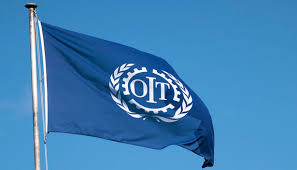The International Labour Organisation (ILO) has said artificial intelligence (AI), especially generative AI, has the power to change the global labour market. But it also warned that if not well managed, AI could increase inequality between rich and poor countries and between different classes of workers. This was stated in a new report titled “Generative AI and Jobs: A Global Perspective on Risks and Opportunities”, released in partnership with Poland’s National Research Institute (NASK).
The report offers a new tool to help governments, especially in developing countries like Nigeria, to understand the risks and opportunities that come with the rise of generative AI. According to the ILO, the new tool – a flexible “AI exposure index” – can help countries identify the jobs that are most exposed to AI, compare different sectors, and plan better policies to protect workers.
Janine Berg, a Senior Economist at the ILO, said, “It’s easy to get lost in the AI hype. What we need is clarity and context. This tool helps countries across the world assess potential exposure and prepare their labour markets for a fairer digital future.”
The report did not only focus on job losses but also explained how AI could support job creation and economic transformation, especially if countries put the right laws, public policies and training systems in place. It said developing countries like Nigeria could benefit from AI by skipping some of the older stages of development, but only if they build strong digital systems and protect workers.
The ILO said many countries in Africa, Asia and Latin America face serious challenges in preparing for AI. These include poor internet and technology systems, weak institutions, and low funding for training workers. Without proper preparation, AI could make things worse by increasing the gap between countries with strong technology systems and those without.
The report mentioned Nigeria as one of the countries with a fast-growing digital economy that could benefit from AI. However, the ILO stressed the need for Nigeria to act fast. It said that AI should not be left in the hands of private companies alone, and that the government, labour unions, and the private sector must work together to make sure no group is left behind.
“This is not about resisting change but about shaping it responsibly,” Berg added. “Without timely action, the digital divide could widen, exacerbating inequalities between and within countries.”
The report is the first in a series. More publications are expected later, which will provide deeper national strategies and practical steps that countries can take. These will help governments, labour unions, and companies understand how best to adapt to the rapid changes brought by AI.
As Nigeria continues to push its digital economy agenda, the ILO’s report is a reminder that early action is key. By using the AI exposure index, developing good training programmes, and creating the right laws, the country can make sure its workers are not left behind in the AI race.
